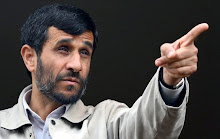Olympia by Henri Cole
In Olympia, Henri Cole uses rich language and imagery to establish a sensual and suffocating atmosphere. This brings the reader more fully into the poem, allowing him/her to feel what the speaker is feeling. The effect is similar to how a movie soundtrack draws an audience more fully into a scene.
As for the poem's meaning, it's clear that the speaker moves through a strange, hyper-sensual, and perhaps threatening, environment to reach a place of revelation. It's not clear, however, what that revelation is. It involves shedding societal definitions of fulfillment for a purely solitary one (Jenny is hardly present in the poem, and we know her only by her flippers) . The poem reminds me of a vision quest, a Native American ritual (sometimes involving hallucinogenic drugs) wherein one looks into one's soul. But what the speaker finds here is complex and not necessarily positive: the final image calls up pain, perhaps sickness, and perhaps drug abuse.
The presence of uncertainty, or mystery, in a poem, doesn't mean it doesn't work. Most great poems, in fact, leave room for interpretation. This, among other things, allows the reader to bring a measure of his/her own experience/identity into the reading. A lot of new readers of poetry are uncomfortable when everything isn't clear, but when uncertainty is done well it can be one of the real joys and strengths of the genre. The trick, as a writer, is knowing just how much uncertainty to leave.
Olympia
by Henri Cole
Tired, hungry, hot, I climbed the steep slope
to town, a sultry, watery place, crawling with insects
and birds.
In the semidarkness of the mountain,
small things loomed large: a donkey urinating on a palm;
a salt-and-saliva-stained boy riding on his mother's back;
a shy roaming black Adam. I was walking on an edge.
The moments fused into one crystalline rock,
like ice in a champagne bucket. Time was plunging forward,
like dolphins scissoring open water or like me,
following Jenny's flippers down to see the coral reef,
where the color of sand, sea and sky merged,
and it was as if that was all God wanted:
not a wife, a house or a position,
but a self, like a needle, pushing in a vein.
 Henri Cole was born in Fukuoka, Japan, in 1956 and raised in Virginia. He received his B.A. from the College of William and Mary in 1978. Cole is currently poet-in-residence at Smith College.
Henri Cole was born in Fukuoka, Japan, in 1956 and raised in Virginia. He received his B.A. from the College of William and Mary in 1978. Cole is currently poet-in-residence at Smith College.
As for the poem's meaning, it's clear that the speaker moves through a strange, hyper-sensual, and perhaps threatening, environment to reach a place of revelation. It's not clear, however, what that revelation is. It involves shedding societal definitions of fulfillment for a purely solitary one (Jenny is hardly present in the poem, and we know her only by her flippers) . The poem reminds me of a vision quest, a Native American ritual (sometimes involving hallucinogenic drugs) wherein one looks into one's soul. But what the speaker finds here is complex and not necessarily positive: the final image calls up pain, perhaps sickness, and perhaps drug abuse.
The presence of uncertainty, or mystery, in a poem, doesn't mean it doesn't work. Most great poems, in fact, leave room for interpretation. This, among other things, allows the reader to bring a measure of his/her own experience/identity into the reading. A lot of new readers of poetry are uncomfortable when everything isn't clear, but when uncertainty is done well it can be one of the real joys and strengths of the genre. The trick, as a writer, is knowing just how much uncertainty to leave.
Olympia
by Henri Cole
Tired, hungry, hot, I climbed the steep slope
to town, a sultry, watery place, crawling with insects
and birds.
In the semidarkness of the mountain,
small things loomed large: a donkey urinating on a palm;
a salt-and-saliva-stained boy riding on his mother's back;
a shy roaming black Adam. I was walking on an edge.
The moments fused into one crystalline rock,
like ice in a champagne bucket. Time was plunging forward,
like dolphins scissoring open water or like me,
following Jenny's flippers down to see the coral reef,
where the color of sand, sea and sky merged,
and it was as if that was all God wanted:
not a wife, a house or a position,
but a self, like a needle, pushing in a vein.
 Henri Cole was born in Fukuoka, Japan, in 1956 and raised in Virginia. He received his B.A. from the College of William and Mary in 1978. Cole is currently poet-in-residence at Smith College.
Henri Cole was born in Fukuoka, Japan, in 1956 and raised in Virginia. He received his B.A. from the College of William and Mary in 1978. Cole is currently poet-in-residence at Smith College.


1 Comments:
I would like some help interpreting this poem. I have trouble with the last three lines. Does Cole mean that being self-aware is what God wants for Cole, the narrator? Does God not care if Cole marries or has a nice house or a nice job, but God wants Cole to have a sense of self? Or is God the one who wants a self? (manifested as Jesus?)
I also have a lot of uncertainty about "a needle, pushing in a vein." Maybe Cole left too much uncertainty in this poem?
If you are willing to discuss this poem, I'd like to hear more of what you think. Thanks!
Post a Comment
<< Home